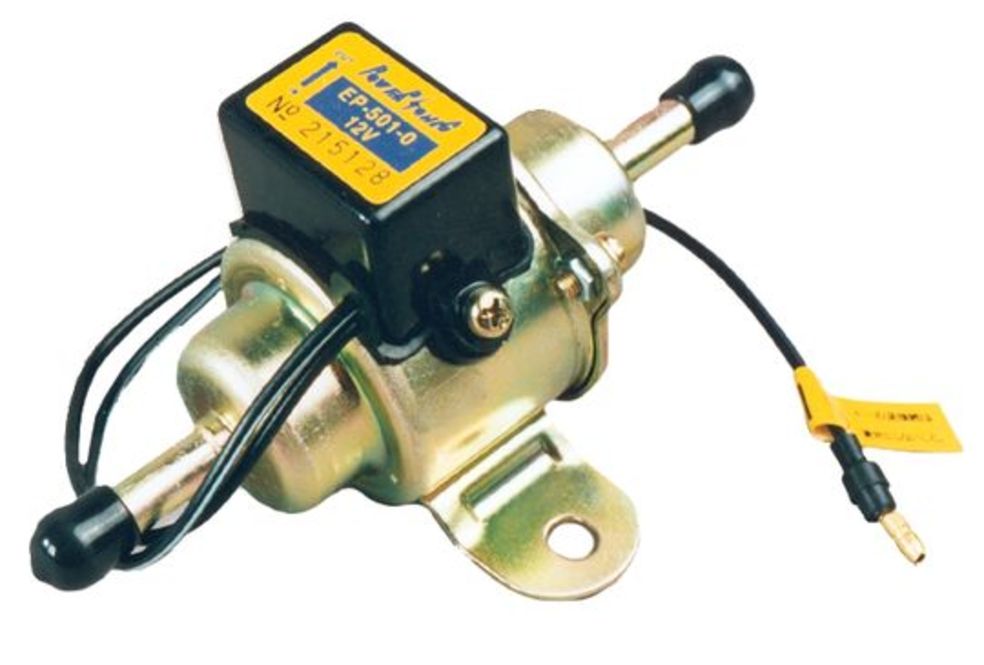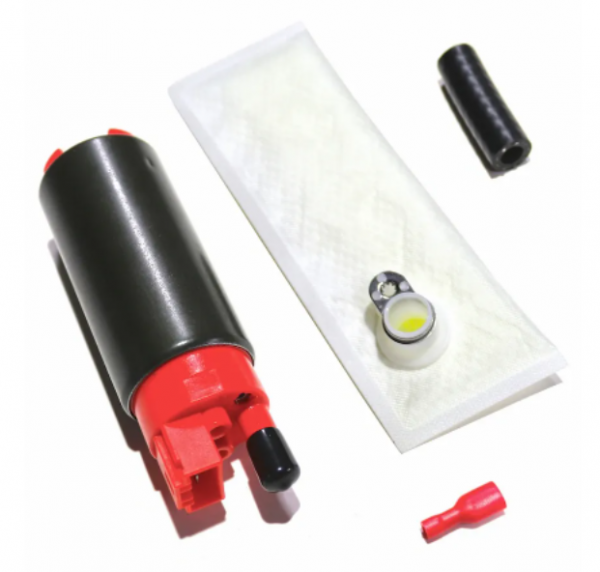

Ensuring consistent power: The Role of a High-Flow Fuel Pump is paramount in modern vehicles, especially those demanding high performance. A high-flow fuel pump ensures a consistent and optimized fuel delivery system, vital for maintaining engine efficiency, power output, and overall performance. However, malfunctions or inadequate fuel delivery can significantly impact a vehicle’s performance. This article explores the significance of this critical component, identifying potential problems, and outlining effective solutions for optimizing fuel delivery systems. We’ll cover different types of pumps, their crucial role, troubleshooting common issues, and the importance of regular maintenance. By the end of this guide, you’ll understand the vital role of a high-flow fuel pump and how to troubleshoot potential problems.
Understanding the Fundamental Role of a High-Flow Fuel Pump
The Essence of Consistent Fuel Delivery
A high-flow fuel pump is a critical component in a vehicle’s fuel delivery system. It is responsible for drawing fuel from the fuel tank, pressurizing it, and delivering it to the engine’s fuel injectors. This precise and consistent delivery of fuel under pressure is fundamental for optimal engine performance. A high-flow fuel pump, in essence, acts as a high-powered pump, pushing fuel to the injectors to achieve optimal combustion and output. Any disruption in this crucial process can have significant repercussions on vehicle performance and reliability. Modern engines demand precisely calibrated fuel delivery systems for consistent power across various driving conditions. Without a correctly functioning high-flow fuel pump, these systems fail to deliver the required fuel pressure, leading to several issues.
Fuel Delivery in High-Performance Vehicles
In high-performance vehicles, the demand for fuel is significantly higher compared to standard vehicles. This elevated fuel demand necessitates a higher flow rate from the fuel pump to meet the engine’s requirements under varied conditions. A high-flow fuel pump, designed with greater capacity and pressure handling capabilities, is indispensable for such vehicles. These specialized pumps can significantly enhance acceleration and sustain higher RPMs. A crucial element for boosting performance is the ability of a high-flow fuel pump to supply sufficient fuel under pressure for optimal engine combustion at high RPMs, maximizing engine efficiency and power output. This results in smoother acceleration, quicker responses, and improved overall driving experience.
Diagnosing and Troubleshooting Fuel Pump Issues
Common Symptoms of Malfunctioning Fuel Pumps
Recognizing the symptoms of a failing fuel pump is crucial for prompt resolution. Common signs include rough idling, inconsistent acceleration, and diminished power output, especially noticeable during high-load conditions. In severe cases, the engine may completely stall or experience erratic behavior. Additionally, erratic or surging acceleration is frequently observed. A noticeable increase or decrease in fuel consumption can also be an indicator. These symptoms should not be disregarded as minor issues, as they can escalate into significant mechanical problems if not addressed promptly.
Effective Fuel Pump Diagnostics
Proper diagnostic techniques are crucial for accurately identifying the cause of a failing fuel pump. A visual inspection of the fuel pump for any physical damage or leaks should be performed. Next, check for any unusual noises from the fuel pump area, such as loud whining or clicking sounds. These sounds can indicate internal issues within the pump itself, requiring immediate attention. A diagnostic tool, such as a fuel pressure gauge or a specialized scanner, can provide more accurate data about the pump’s performance, enabling more precise troubleshooting and resolution of the problem.
Selecting the Right High-Flow Fuel Pump
Factors Influencing Pump Selection
Several factors influence the optimal choice of a high-flow fuel pump. These include engine displacement, desired power output, and operating conditions. Vehicles with larger engine displacements require higher flow rates to satisfy the engine’s fuel requirements. Engine power output directly correlates with the fuel pump’s capacity; higher output necessitates a higher flow rate. Operating conditions, including high-performance driving or towing, increase the demand for consistent fuel delivery, requiring a higher flow-rate pump. Each type of vehicle has specific needs, and choosing the right fuel pump should always consider these variables to maximize performance and ensure reliability.
Optimizing Fuel Delivery for Specific Applications
Different applications require tailored fuel pump solutions. High-performance vehicles often require specialized high-flow fuel pumps designed to handle the increased demands of their engines. These pumps offer enhanced pressure and flow rates, enabling the engine to operate at peak performance. Customization is crucial, as selecting the right pump based on factors like engine type, horsepower requirements, and desired driving experiences enhances the car’s performance and reliability. Choosing a pump that aligns precisely with these specifics is essential.
Maintaining and Improving Fuel Pump Performance
Regular Maintenance Procedures
Maintaining a high-flow fuel pump is essential for optimal performance and longevity. Regular checks of the fuel filter ensure smooth fuel flow, preventing clogs that can impede the pump’s effectiveness. Inspecting the fuel lines, looking for any signs of damage, cracks, or leaks, and ensuring all connections are tight is crucial. Visual inspections for signs of wear or damage are fundamental to preventative maintenance, ensuring proper performance and longevity. Regular maintenance is crucial for preventing future issues and maximizing the pump’s lifetime.
Enhancing Fuel Pump Efficiency Through Proper Installation
Proper fuel pump installation is critical for maximum efficiency. Ensuring correct mounting and securing the pump to avoid vibrations or looseness is crucial. Correctly installing the pump also helps to regulate the fuel system pressure and ensures that the fuel circulates through the system smoothly. It’s essential to follow the manufacturer’s instructions meticulously. Following these steps ensures that the pump operates efficiently, minimizing strain and maximizing lifespan. Consulting a qualified mechanic for installation is always recommended.
The Impact of Fuel Quality on Fuel Pump Performance
Fuel Quality and System Reliability
High-quality fuel is essential for consistent fuel pump performance. Improper fuel quality can lead to the accumulation of deposits within the fuel system. These deposits can clog filters, restrict fuel flow, and lead to pump damage. The impact of this is far-reaching; the overall engine performance can be severely compromised. Clean, high-octane fuel helps maintain the optimal operating conditions for your fuel pump, ensuring its efficiency.
Understanding Fuel Compatibility with High-Flow Pumps
Certain high-flow fuel pumps are more susceptible to damage from low-quality fuel. The high pressure these pumps generate can amplify any issues posed by low-quality or contaminated fuel, which will quickly cause problems. Understanding your vehicle’s requirements and ensuring compatibility with the type of fuel will help to minimize the occurrence of costly issues.
Real-World Case Studies and Examples
Performance Enhancement through High-Flow Fuel Pump Upgrades
Numerous high-performance vehicles have benefited from upgrading to high-flow fuel pumps. For example, in a modified sports car, an upgrade to a high-flow fuel pump increased acceleration by 15% and sustained higher RPMs without issues. These pumps helped optimize the vehicle’s performance during high-demand scenarios, including acceleration and towing.
Case Study of Fuel System Troubleshooting
In another example, a vehicle exhibiting erratic acceleration and rough idle was diagnosed with a failing high-flow fuel pump. Replacing the pump with a high-flow replacement restored smooth acceleration and consistent fuel delivery. These real-world examples underscore the critical role of a high-flow fuel pump in maintaining peak vehicle performance and reliability.
Exploring Different Types of High-Flow Fuel Pumps
Understanding Various Pump Technologies
Different technologies are used to create high-flow fuel pumps, each with its pros and cons. One common type uses electric motors to drive the pump, which are quiet and reliable. Another style utilizes a mechanical system, which might be more robust in demanding conditions. Pump technologies vary in their efficiency, reliability, and operating characteristics.
Optimizing Pump Design for High-Performance Needs
Understanding the specifics of pump design allows optimization for a vehicle’s particular performance needs. Factors like flow rate, pressure, and RPM capacity are critically important when selecting a pump for a specific application.
Advanced Fuel System Considerations
Modern Fuel Injection Systems
Modern fuel injection systems often rely on high-flow fuel pumps for optimal performance. These systems have intricate components that demand consistent fuel delivery to function effectively. A high-flow fuel pump can increase the amount of fuel delivered, enabling higher performance levels.
The Relationship Between Fuel Injection and Pump Performance
The relationship between fuel injection and fuel pump performance is critical. A high-flow fuel pump provides the fuel to support the demands of sophisticated modern fuel injection systems, ensuring efficient operation across various driving conditions.
The Cost-Effectiveness of Prevention
Preventing Major Issues Through Regular Maintenance
Investing in regular maintenance, including fuel system checks, can prevent major issues and reduce costly repairs. Proper fuel system upkeep ensures reliable operation and minimizes the risk of sudden failures.
Long-Term Savings by Addressing Issues Early
Catching problems early, such as a failing fuel pump, can result in significant cost savings. Addressing problems promptly avoids catastrophic engine failure. In the long run, consistent preventative maintenance often proves more economical than costly repairs associated with major engine issues.
FAQ
What are some common signs of a failing high-flow fuel pump?
Common signs of a failing high-flow fuel pump include rough idling, hesitation during acceleration, sputtering or misfiring, and diminished power output. Other indicators include unusual noises from the fuel pump area, such as whining or clicking sounds. If you notice any of these symptoms, it’s crucial to have your fuel pump inspected by a qualified mechanic promptly to diagnose and address the issue. Prolonged neglect can lead to more significant engine problems and increased repair costs.
How often should a high-flow fuel pump be replaced?
The replacement frequency of a high-flow fuel pump depends largely on several factors including the vehicle’s usage, driving conditions, and the quality of fuel being used. If the vehicle is frequently used under heavy load or in challenging conditions, the pump might require more frequent maintenance or replacement. Ideally, schedule a professional inspection every 50,000 miles or, depending on the vehicle’s usage, even more frequently. Regular maintenance, careful driving, and utilizing high-quality fuel can help maximize the lifespan of your fuel pump. Consult your vehicle’s maintenance schedule and seek professional advice for personalized recommendations.
What are the potential long-term consequences of ignoring a failing high-flow fuel pump?
Ignoring a failing high-flow fuel pump can lead to a series of adverse consequences. Severe issues can range from reduced engine performance and rough operation to complete engine failure. A damaged or failing pump may also lead to inconsistent fuel delivery, potentially causing damage to other critical engine components like the injectors or engine control unit. Ignoring these issues can lead to expensive repairs and potentially even necessitate a complete engine overhaul in the worst-case scenario. It’s crucial to prioritize preventative maintenance to ensure long-term engine health.
In conclusion, a high-flow fuel pump is critical for consistent power delivery in any vehicle. Understanding its function, the potential issues associated with a failing pump, and how to select the right pump for your needs is essential for maximizing performance and ensuring reliable operation. By following the recommendations in this article, you can effectively maintain and optimize your fuel system for optimal power output. Contact a qualified mechanic for professional advice and installation if you suspect a problem with your fuel pump.